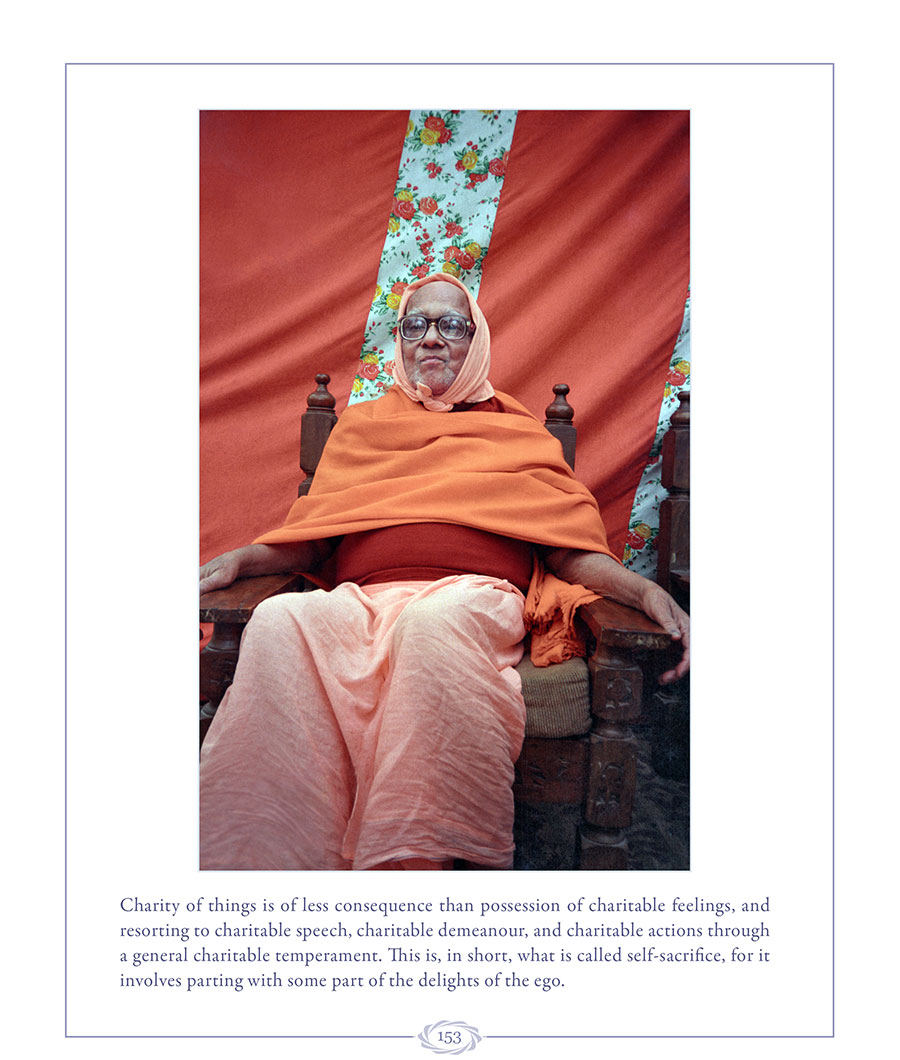The Chandogya Upanishad - 3-19,20,21, : Swami Krishnananda.
=========================================================================
Monday, January 16, 2022. 07:30.
Chapter - 3 : Sanatkumara's Instructions on Bhuma-Vidya :
SECTION 19: FAITH
SECTION 20: STEADFASTNESS
SECTION 21: ACTIVITY :
=========================================================================
SECTION 19: FAITH :
Yada vai sraddadhati, atha manute, nasraddadhan manute, sraddadhad-eva manute, sraddha tveva vijijnasitavyeti, sraddham, bhagavah, vijijnasa iti.
Sraddha, faith in the existence of Reality, and the working of this tendency of movement of one's being towards Reality are almost simultaneous. How do we know that Reality exists? That is a faith that is in our mind, introduced into us by the very tendency of Reality urging itself forward towards its own Self-realisation. This faith is superior to thought and understanding. It is not what we call blind faith, but an irrepressible feeling in us that Reality is. It must be there. We do not have any doubt about Its being. Mati and sraddha go together. So, Narada is told here, "This sraddha, faith in the very existence of Reality, is somehow to be taken as prior to mati, the consciousness of the tendency towards Reality working through your being, when this faith is present in you. You have to differentiate ordinary faith from this superior faith that I am speaking of. It is almost a kind of realisation. Without this faith in you which is born of tremendous experience of a higher calibre, nothing else is possible." Narada says: "I want this faith to be implanted in me, O great master."
SECTION 20: STEADFASTNESS :
Yada vai nististhati, atha sraddadhati, na'nististhan sraddadhati nististhanneva sraddadhati, nistha taveva vijijnasitavyeti, nistham, bhagavah, vijijnasa iti.
When one has steadfastness in Reality, then this superior faith also comes. A person who has steadfastness becomes one with the Reality, as it were, in his psychological being. This is called nishtha in this section. Sanatkumara says that when there is nishtha, there is sraddha, and when there is sraddha there is mati, the tendency in one to move towards Reality.
What exactly is this steadfastness referred to in this section? It is an incapacity of the mind to contemplate anything except Reality. If we think, we think only that; otherwise, nothing. The very function of the mind is set in tune with the nature of Reality so profoundly that we have virtually become that. This is the cause of the faith in us, and the working of the tendency in us towards Reality which we have mentioned already.
"I want to know what this nishtha is. O great master, kindly instruct me further," says Narada.
SECTION 21: ACTIVITY :
Yada vai karotyatha nististhati, nakrtva nikstisthati krtvaiva nististhati, krtis-tveva vijijnasitavyeti, krtim bhagavo vijijnasa iti.
All this is the effect of another important factor, kriti, self-control, that has either been exercised by the aspirant or arisen in him automatically, whatever be the reason behind it. In other words, it is a withdrawal of consciousness from every kind of external perception. This is a superior activity that he is performing. His attunement with the nature of Reality in contemplation is due to the self-control that he has exercised in his being, which means to say that his senses have weaned themselves from their contacts with things outside, and he no longer regards the objects of sense as being outside the knowledge that he is aspiring for. So, self-control does not mean a pressure exerted upon the senses by force of will, but a spontaneous withdrawal of consciousness from its desire to externalise itself in respect of outward things on account of the superior faith, on account of this aspiration, on account of this knowledge. The individuality in us, the jivatva in us, the personality in us, the subjectness that has been responsible for our perception of the objects of sense, has become null and void automatically on account of consciousness ceasing to work in terms of objects of sense. When the outside objects of sense cease to be, the subject also ceases to be. When one thing goes, its counterpart also goes. So when the world has gone, the 'you' or the 'I' also is gone. There is nothing on either side, neither on the object side nor on the subject side. This great achievement is prior to everything, transcendent to everything.
"What is this great achievement of the human personality in respect of the ultimate Absolute? Can I be enlightened a little further about this supreme achievement? How can I achieve this at all? What is this action of self-control that you are enjoining upon me as preceding to every other activity conceivable?" asks Narada.
*****
Next
SECTION 22: HAPPINESS :
To be continued
========================================================================

.jpg)








Comments
Post a Comment